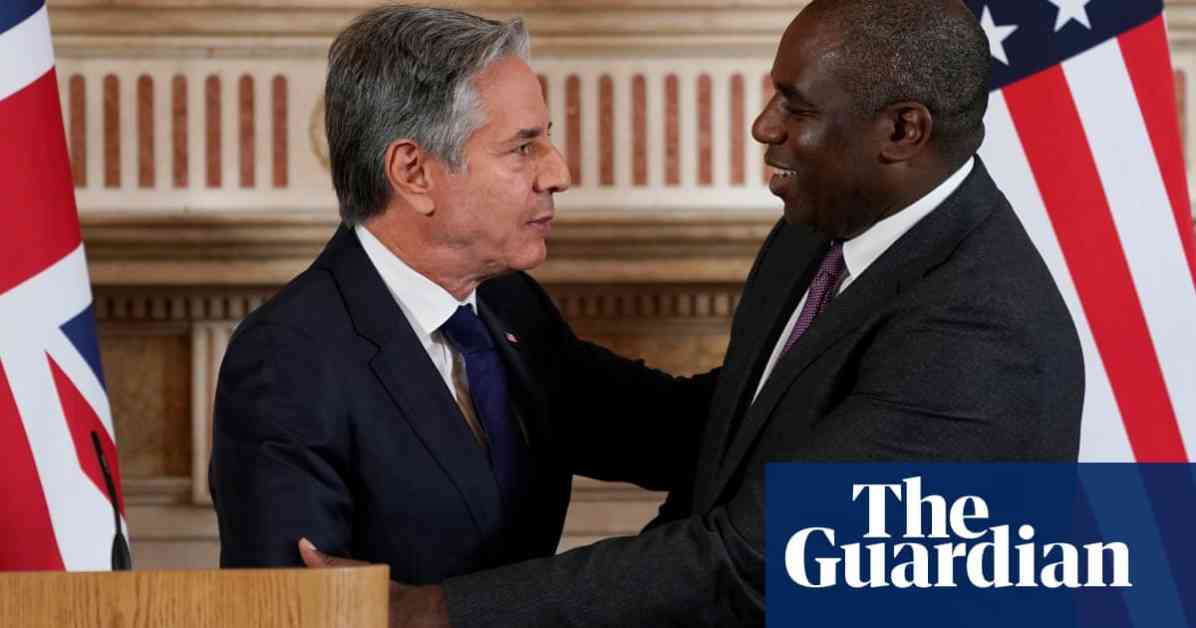Russia Acquires New Ballistic Missiles from Iran: Blinken’s Alarming Revelation
In a shocking turn of events, Russia has reportedly obtained new deadly ballistic missiles from Iran for potential use in Ukraine, according to a statement made by the US secretary of state, Antony Blinken, during a press conference in London. This development, confirmed by the US for the first time, has raised concerns about the escalating conflict in Ukraine and prompted the US and Europe to impose new sanctions on Iran. The implications of this missile transfer are significant, not only for the ongoing conflict in Ukraine but also for the broader geopolitical landscape in the region.
Geopolitical Ramifications of the Missile Transfer
The transfer of ballistic missiles from Iran to Russia marks a concerning escalation in the conflict in Ukraine, as it provides Russia with enhanced capabilities to strike targets farther from the frontline. The Fateh-360 (BM-120) missiles supplied by Iran to Russia are short-range ballistic missiles that can carry a 150kg warhead and be launched at a speed of Mach 3 (2,300mph). This new development has the potential to shift the balance of power in the region and poses a direct threat to European security.
The growing cooperation between Russia and Iran, particularly in the realm of military technology, raises questions about the intentions of both countries and their broader strategic objectives. The sharing of missile technology between Russia and Iran, as well as potential collaboration on nuclear issues, underscores the need for enhanced vigilance and coordinated action by the international community to address these destabilizing activities.
Implications for Western Allies and Ukraine
The revelation of Iran’s transfer of ballistic missiles to Russia has raised concerns among Western allies, particularly the US and Europe, about the implications for the conflict in Ukraine. The US has reiterated its commitment to providing Ukraine with the weapons it needs to defend itself, but concerns about the potential escalation of the conflict and the strategic implications of using advanced weaponry against Russia have complicated the decision-making process.
The debate over whether to sanction the use of British-supplied Storm Shadow missiles by Ukraine to strike targets deep inside Russia reflects the complex dynamics at play in the conflict. While Ukraine has sought permission to use these missiles for strategic purposes, concerns about the potential consequences of such actions, including the risk of further escalation and crossing red lines set by Vladimir Putin, have led to a cautious approach by Western allies.
The upcoming meeting between US President Joe Biden and Ukrainian President Volodymyr Zelenskiy in Washington will be crucial in determining the future course of action in Ukraine and assessing the viability of a coordinated strategy to confront Russian aggression. The need for a comprehensive plan to support Ukraine through the winter and ensure its ability to resist Russian incursions remains a top priority for the international community.
International Response and Diplomatic Efforts
The imposition of new sanctions on Iran by the US and Europe, in response to the missile transfer to Russia, reflects a concerted effort to deter destabilizing actions and protect European security interests. The joint statement issued by Germany, France, and the UK condemning the Iranian decision underscores the united front presented by Western allies in response to this provocative act.
The call by German Chancellor Olaf Scholz for a peace conference attended by Moscow highlights the ongoing diplomatic efforts to de-escalate the conflict in Ukraine and seek a peaceful resolution to the crisis. However, the recent escalation in missile transfers from Iran to Russia has complicated these diplomatic efforts and raised concerns about the potential for further violence and instability in the region.
In conclusion, the transfer of ballistic missiles from Iran to Russia represents a dangerous escalation in the conflict in Ukraine and poses a direct threat to European security. The international community must remain vigilant and coordinated in its response to these destabilizing actions, and work towards a peaceful resolution to the crisis through diplomatic means. The upcoming meetings between key leaders, including Biden and Zelenskiy, will be crucial in determining the course of action and ensuring the protection of Ukraine’s sovereignty and security.












